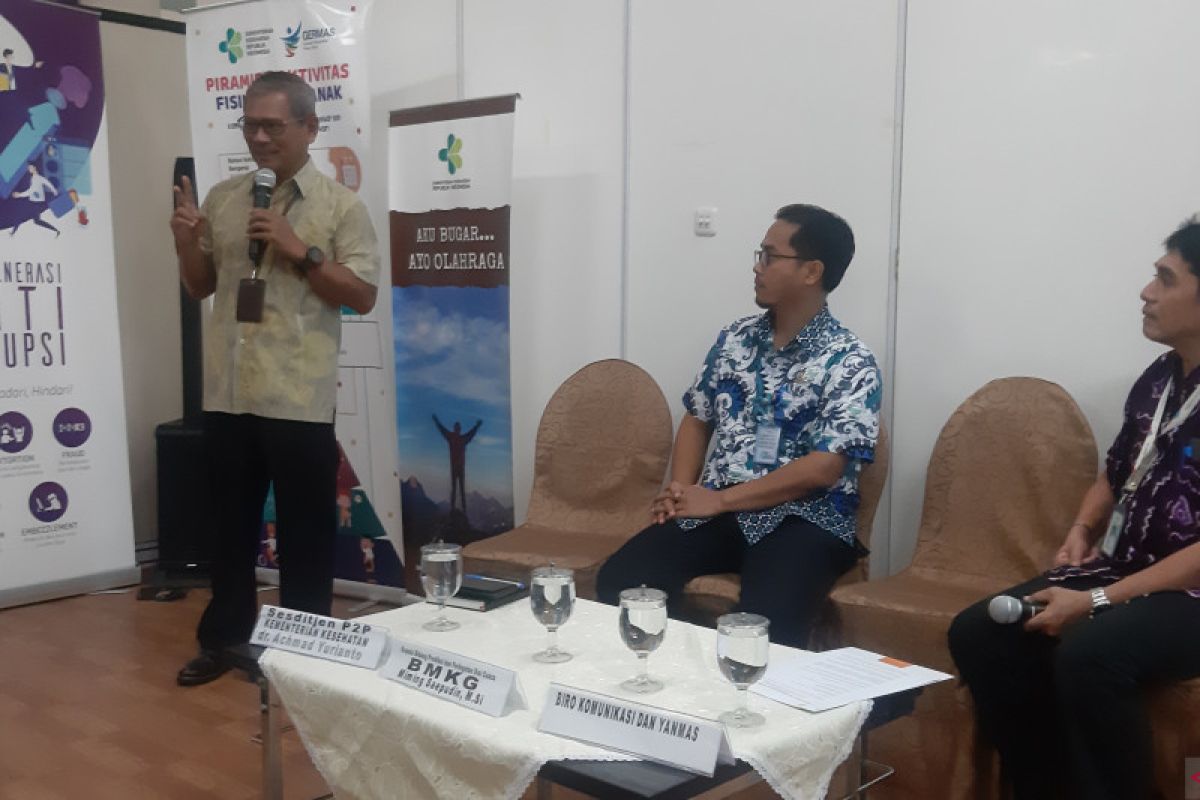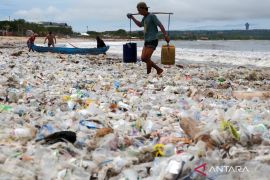But if (the number of cases) doubles from earlier, the condition can be called extraordinary,Jakarta (ANTARA) - The Health Ministry has appealed to the public to stay alert for a health impact that may result from rising temperatures in several parts of Indonesia until the next week. "The number of cases related to weather change has increased." Secretary of the Directorate General of Diseases Prevention and Control of the Health Ministry Dr. Achmad Yunanto said at a media gathering at the ministry Friday.
Under different conditions with a certain kind of humidity and temperature, the mosquito population increases rapidly, he said.
If the mosquito is a disease vector, the number of dengue fever, chikungunya, malaria, etc. cases during the hot temperature period will increase though the number is not significant, he said.
"But if (the number of cases) doubles from earlier, the condition can be called extraordinary," he said.
In addition to a potential rise in dengue fever cases, the rising temperatures coupled with strong winds during the drought may also cause dust particles to remain in the air, he said.
The condition may increase cases of respiratory disorder significantly. The simple case is usually preceded by an allergy that may lead to influenza-like illness (ILI) or acute respiratory tract infections if accompanied by allergy, he said.
"The number of cases increases altogether. To make thing worse, if somebody capitalizes on the hot temperature and sets fire to peatland it causes a haze," he said.
Earlier, the Meteorology, Climatology and Geophysics Agency (BMKG) predicted that the rising temperature phenomenon would continue until the next week in most of the Indonesian territory.
"The rise in temperatures occurs due to several factors, including the sun’s culmination in Java Island to the south and the dominant sunny weather in the Indonesian territory," Chief of the BMKG Weather Prediction and Early Warning Section Miming Saepudin said.
Also, the long periods of sunshine occur due to the cold temperatures in surrounding Indonesian waters, which prevents the formation of rain clouds in Sumatra, Java and surrounding areas.
Related news: Jakarta residents complain of rising temperatures
Related news: Indonesia to experience temperature increase from 2020 - 2030: BMKG
Translator: Katriana/Suharto
Editor: Gusti Nur Cahya Aryani
Copyright © ANTARA 2019












